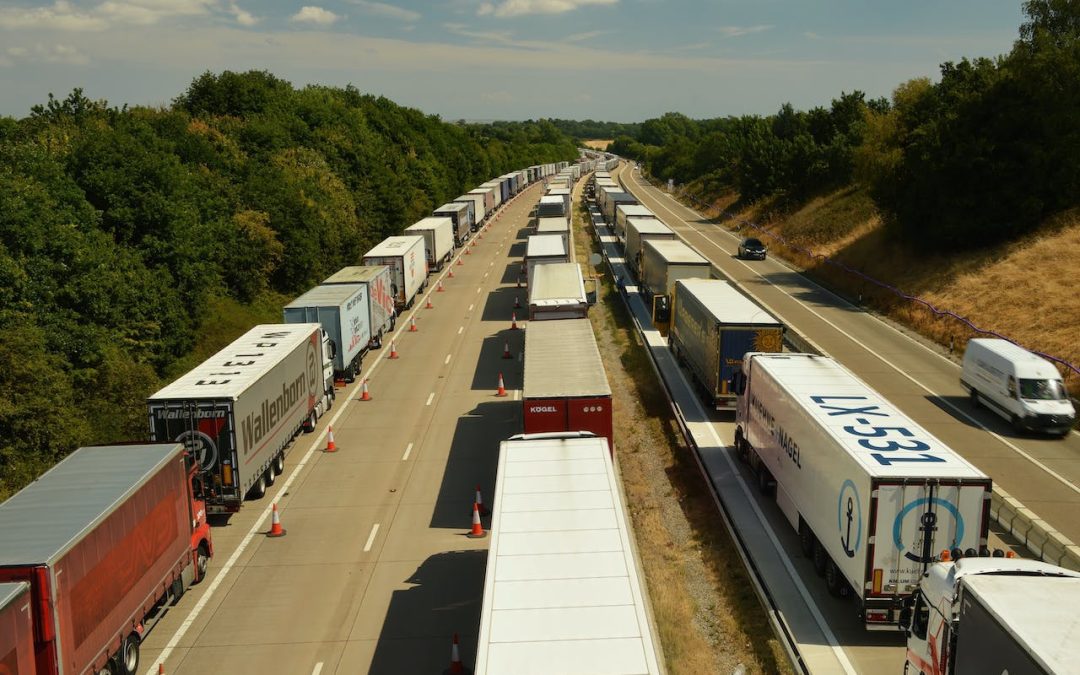Road freight dominates the freight industry. Over 70% of freight in the UK uses the method, and 98% of food and agricultural equipment is transported by road.
Like all modes of transport, this mode of transport has advantages and drawbacks… But is it right for you?
Here are 5 things you need to know before choosing road freight.
It’s Not The Fastest
That’s right. If speed is of prime importance for the goods you ship, other freight modes might suit your needs better.
But, it’s not the slowest either. Cars, vans and trucks are fast to load and fast to start up, making road freight a super efficient transport solution for many international import and export journeys.
Now, we know what you’re thinking. Air freight wins overall when it comes to speed. However, it’s not always suitable due to size, weight and volume restrictions. Moving goods by rail can provide a similar travel timeline to the road, and ocean freight is much slower, but both methods often include road freight in their journey because it allows a door-to-door service.
It’s The Most Efficient
Unlike other methods of moving freight, where goods are often required to go through various loading and unloading stages, cargo travelling by truck, lorry or van remains in situ until it’s delivered. This reduces handling and packing times.
Extensive road networks worldwide also mean that virtually everywhere is accessible without additional modes of transport, enabling your shipment to be taken from its point of origin right up to its destination with ease.

It’s The Most Flexible
Thanks to the road networks stretching over countries around the globe, road freight is also the most flexible mode of transportation for your goods. Unlike other methods, road freight isn’t tied into pre-determined schedules.
Road freight is adaptable, and goods travelling this way can:
- Get to areas that aren’t near ports, rail stations and airports.
- Be easily rerouted in an instant in the event of blockages.
- Be matched to different types of vehicles to suit the shipment, like refrigerated trucks.
- Consist of anything from perishables to fragile goods – even large and awkward consignments like yachts!
It’s Not For Long Haul
Road freight is a great transport solution for many shipments. However, it’s infinitely more suitable for short to mid-distance journeys of up to 2,500 kilometres; over longer journeys, road freight becomes less efficient and less economical – plus road vehicles can’t cross bodies of water!
For long-haul shipments, consider rail and air freight. You can read more about rail freight here, and for air freight, follow this link.
It’s Highly Reliable
With an extensive road network comes well-established routes all over the UK, Europe and further afield.
Cargo travelling via road undergoes minimal handling because it doesn’t usually need to be unpacked and repacked. This means your goods remain at a low risk of damage or loss.
Not only that, but GPS and specialist fleet management software mean that road freight is easily trackable, providing clients with real-time information that can help them provide gold-standard customer service and manage their supply chain effectively.
Will You Choose Road Freight For Your Shipment?
Road freight is a solid choice if your cargo is on a short to medium journey. Getting your goods from their point of origin to the door of their destination, goods travelling via road are at low risk of damage and can be easily re-routed in the event of an RTA or road closure.
Looking for advice about the best freight shipping method for your goods? Check out Millennium’s website to get in touch.

